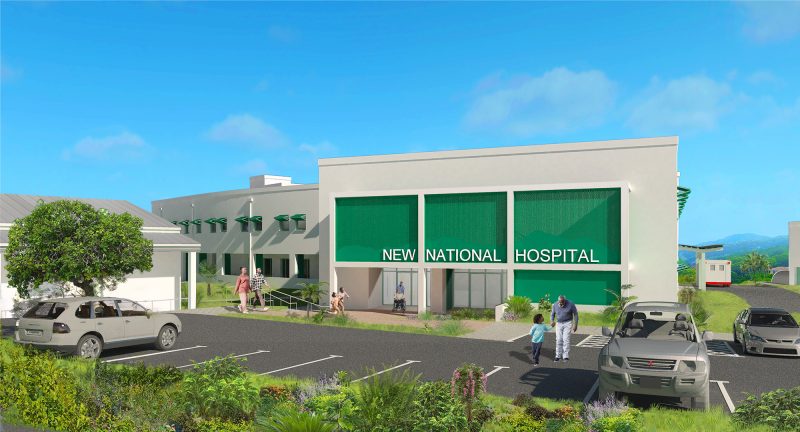Montserrat is part of a six-nation project to reduce marine litter in the Caribbean.
The Reduction in Marine Litter (ReMLit) project from the Organisation of Eastern Caribbean States (OECS) and which is funded by the Government of Norway’s Ministry of Foreign Affairs was launched in 2019 and is expected to be completed in 2022.
Montserrat’s programme called “Curbing the Source of Marine Litter in Montserrat” began in July 2021 with the engagement of two local consultants to execute the project designed by the Department of Environmental Health, with inputs from the Department of Environment.

Garrett Stanley, Head of the Department of Environmental Health said the two key aspects of the ReMLit project for the island is the land-based pollutants which enter the bay via the four ghauts which comprises Collin’s River and the persistent problem of beach pollution on both the Carr’s Bay and Little Bay beaches.
These ghauts all pass through high density residential areas in the Northern side of the island, resulting in a higher level of marine debris and litter in comparison to the others on the Western coast. A mangrove located near the mouth of the Collin’s River is home to the largest population of shorebirds on island and is visited by many migratory birds annually. Pollutants entering the ecosystem from household and business waste upstream presents an environmental concern.
The Montserrat consultants have two main assignments. W. Keith Thomas, civil engineer and the principal of K. T. Engineering Consultants Limited (KTEC Ltd.) is tasked with assessing the land-based sources of marine litter in the Carr’s Bay Area and the impact of waste deposited via the Collin’s River and its tributaries to determine trends. In close collaboration with communities and businesses, make recommendations to reduce the impact of pollution, and design and establish a simple mechanical and/or systems for keeping land-based litter from entering the Carr’s Bay marine environment.
Thomas is deploying drones to capture still photos and videos weekly of the activity in the Collin’s River and its tributaries. The coastline is also being monitored to understand what makes its way to the bay from this river.
Nerissa Golden, a media and business strategist who leads Goldenmedia LLC has been contracted to assess the effectiveness of current waste management systems and how residents and businesses dispose of their waste. She is also to design an information campaign to encourage best practices and behaviours that promote proper waste disposal.
Already completed by Golden, is a waste management assessment and a community survey to ascertain the views of residents and businesses in the affected areas. These areas are Brades, Manjack, Salt Springs, Barzeys, Sweeneys, Davy Hill, Carr’s Bay and Little Bay.

As both Carr’s Bay and Little Bay attract a high volume of beach users especially on weekends and public holidays, the adequacy of the waste receptacles to store garbage on the beaches was assessed. The bins used on the beaches and in most communities are typically uncovered and unsecured barrels. On long holiday weekends, garbage receptacles are overflowing, and waste can often be seen along the beachfront. The project includes scope for acquiring garbage bins for residential and public use.
As noted in the project brochure, “a more complex issue is that nearby residents often dispose of their household refuse in the bins which are delegated for trash generated at the beach. There is also a practice of burying bottles and other single use items in the sand by some beach users. Efforts to remove litter by divers, and clean-up campaigns which are periodically organized by community-based groups and volunteers in the community, although appreciated, do not get to the root of the litter problem and therefore, results in a cyclical situation.”
The Montserrat component of ReMLit is expected to be completed by June 2022.
The other nations in the project are Antigua and Barbuda, Commonwealth of Dominica, Grenada, St. Lucia, and St. Vincent and the Grenadines.
Discover more from Discover Montserrat
Subscribe to get the latest posts sent to your email.



